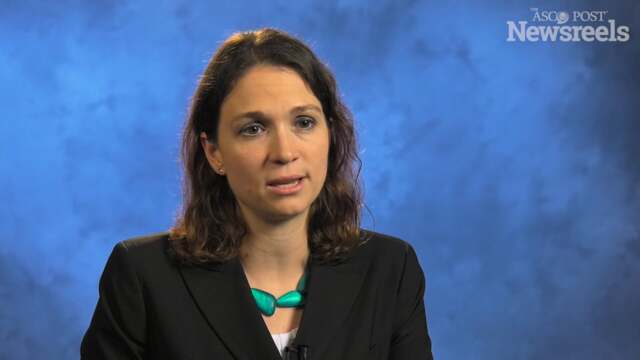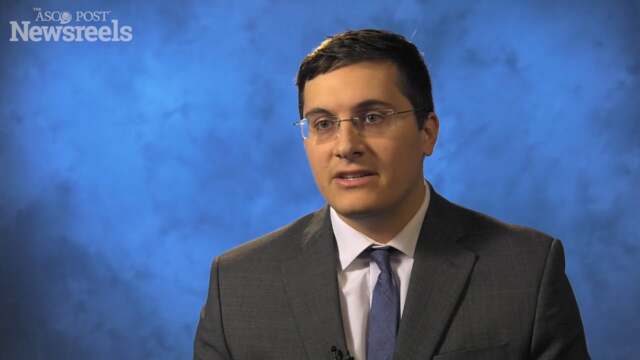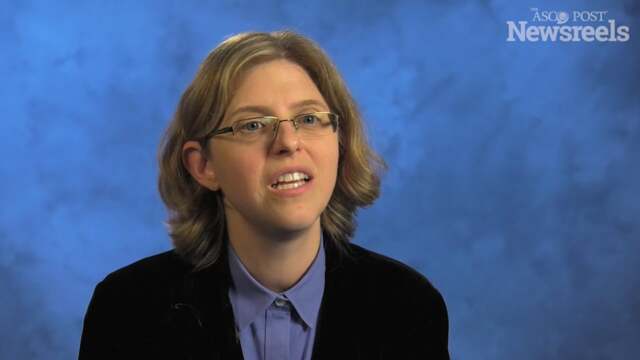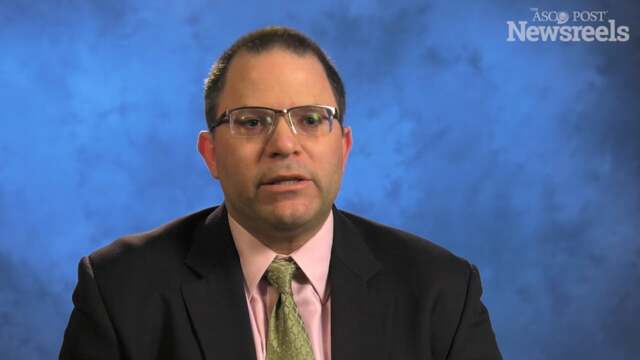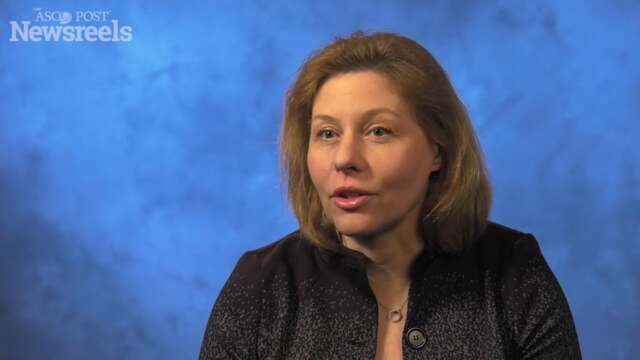Robert S. Miller, MD, on CancerLinQ: Big Data and Clinical Effectiveness
2017 Quality Care Symposium
Robert S. Miller, MD, of ASCO, updates the progress of CancerLinQ and its data set, now being used by oncologists to track quality measurement and reporting.
Gabrielle Rocque, MD, of the University of Alabama at Birmingham, discusses the challenges of implementing Oncology Care Model requirements, such as providing treatment plans, and the opportunities to transform practices with improved workflow and patient outcomes.
Caleb Dulaney, MD, of the University of Alabama at Birmingham, discusses ways to broaden and improve the quality of information that women with breast cancer find—in English and Spanish—on websites of nationally recognized cancer centers (Abstract 135).
Laura E. Panattoni, PhD, of the Fred Hutchinson Cancer Research Center, discusses results from a regional study on emergency department costs during cancer treatment and the need to focus on managing symptoms (Abstract 2).
Brian Weiss, MD, of Cincinnati Children’s Hospital Medical Center, discusses a program designed to eliminate errors in chemotherapy use among pediatric patients whose regimens incorporate multiple drugs and rigorous monitoring schedules (Abstract 37).
Nicole Mittmann, PhD, of the Sunnybrook Health Sciences Centre, discusses her study findings on transitioning breast cancer survivors to primary care and the savings in resources and dollars that accrued as a result (Abstract 1).
